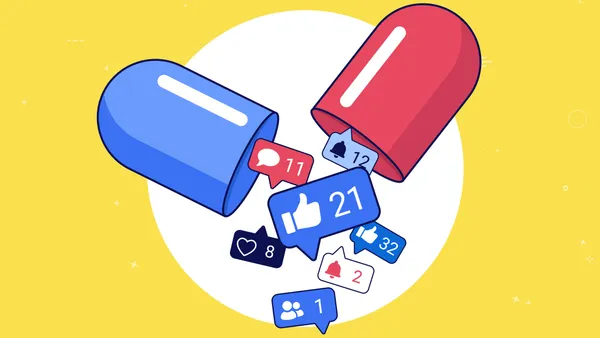 Effective data businesses have always been built on a foundation of individual honesty. Leaders faced with big decisions have been quick to listen to what their patients and employees tell them, but have also been slower to make judgments based on their gut instincts. The reason? EHR data just weren’t always available.
Effective data businesses have always been built on a foundation of individual honesty. Leaders faced with big decisions have been quick to listen to what their patients and employees tell them, but have also been slower to make judgments based on their gut instincts. The reason? EHR data just weren’t always available.
Over the course of the past 20 years, as someone who has been immersed in the development of pharmaceutical technology, I’ve seen the applications of EHR systems and other analytics-type instruments trend consistently upward in large HCOs — and yet only now are they becoming mainstream in smaller practices and pharmacies across the United States.
The ability to track a patient’s history to get a clearer picture of their current state of health is amazing territory, particularly for HCPs who intend to use that information to help improve patient outcomes.
Developing a True Picture of Drug Performance
Experts predict that as physicians and pharmacists continue to infuse EHR systems with new clinical data, the true picture of the way drugs are performing in the real world will begin to take shape. On one hand, clinical trials are much like a snapshot in time, whereas real outcomes always play out over the course of time. The difference, when studied over time, often brings to light valuable findings that might not have been previously clear. From there, it stands to reason that data from EHR systems have an important role to play in helping companies take more proactive actions on behalf of their patients.
Historically, the pharma industry was thought to be left out of the EHR data space, due to stringent promotional regulations and worries about privacy. However, increased adoption by physicians through meaningful use initiatives has opened up opportunity in two areas: positioning branded and  unbranded messaging within the EHR system, and collecting real-world evidence across the patient spectrum for improved clinical support. More and more companies are taking advantage of these valuable opportunities, experts say.
unbranded messaging within the EHR system, and collecting real-world evidence across the patient spectrum for improved clinical support. More and more companies are taking advantage of these valuable opportunities, experts say.
With the greater adoption of new technologies by physicians, EHRs have increased in relevance and importance for pharma companies. The ability to analyze large data sets certainly has contributed to the change as well.
Big Data and Marketing
The opportunity for marketers in EHRs is real and it’s here, and physicians want pharma involvement. But it’s imperative that a brand has a clearly defined EHR strategy to capitalize on this channel opportunity and ensure they are getting a fully integrated communications plan. There are also several ways to reach physicians through electronic medical records (EMRs). One obvious component is providing information about a brand at the point-of-prescribing that is of high clinical value to physicians. Other examples include formulary data and safety updates. EMRs can also be used for direct marketing to physicians through banner ads, industry-sponsored clinical resources, and emerging solutions.
Marketing to HCPs through EHRs is, however, not without its obstacles. There are about 500-plus EHR system vendors, with only a handful offering partnerships with pharma companies. Therefore, using EHRs is not a one-size-fits-all approach to marketing, and it might be necessary to customize materials for each platform. There are also concerns about privacy, interruption of the HCP process by forcing information during a clinical decision, and the intricacies of integration with EHRs.
In that regard, as providers increasingly draw on patient data to trigger decision-making, they are really only steps away from applying the same information to spread the word about best practices in medicine to target audiences.
In the face of increasing drug costs, hospitals are asking their pharmacy partners to do more. Naturally, controlling spending comes first, but increasingly, that task is tied to helping patients manage their healthcare through smartphone apps.
Tracking when prescriptions run low and automatically sending adherence messages are just a couple of advantages on the customer side, but the subsequent data-collection aspects on the pharmacist side are already leading to improvements in quality metrics while keeping pace with confidentiality and regulatory concerns. As a result, HCPs in general, empowered by the access to data points in their EHRs, are better positioned to offer more efficient and personalized service to each patient.(PV)
Ogilvy Health makes brands matter by keeping our audiences’ health, healthcare and wellness needs at the center of every touchpoint.
For more information, visit ogilvyhealth.com.











